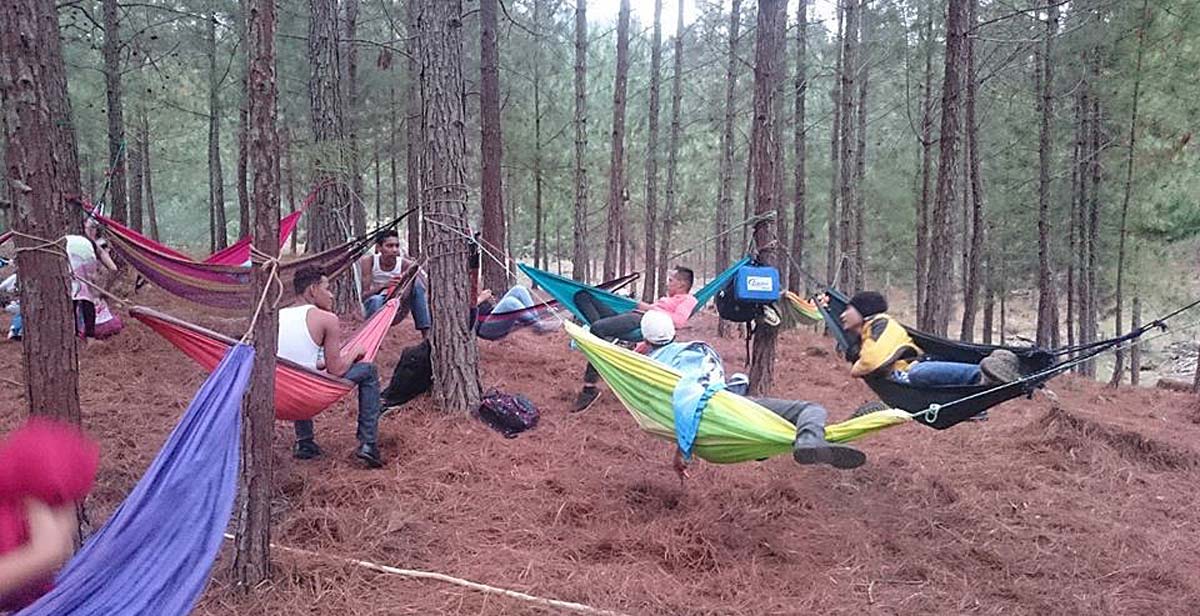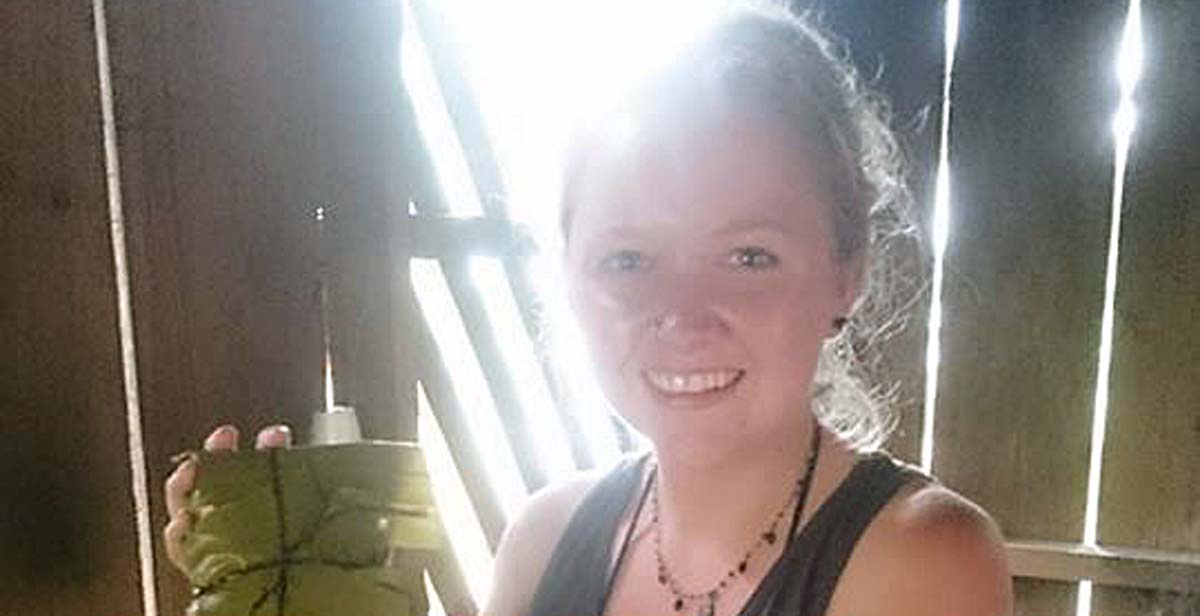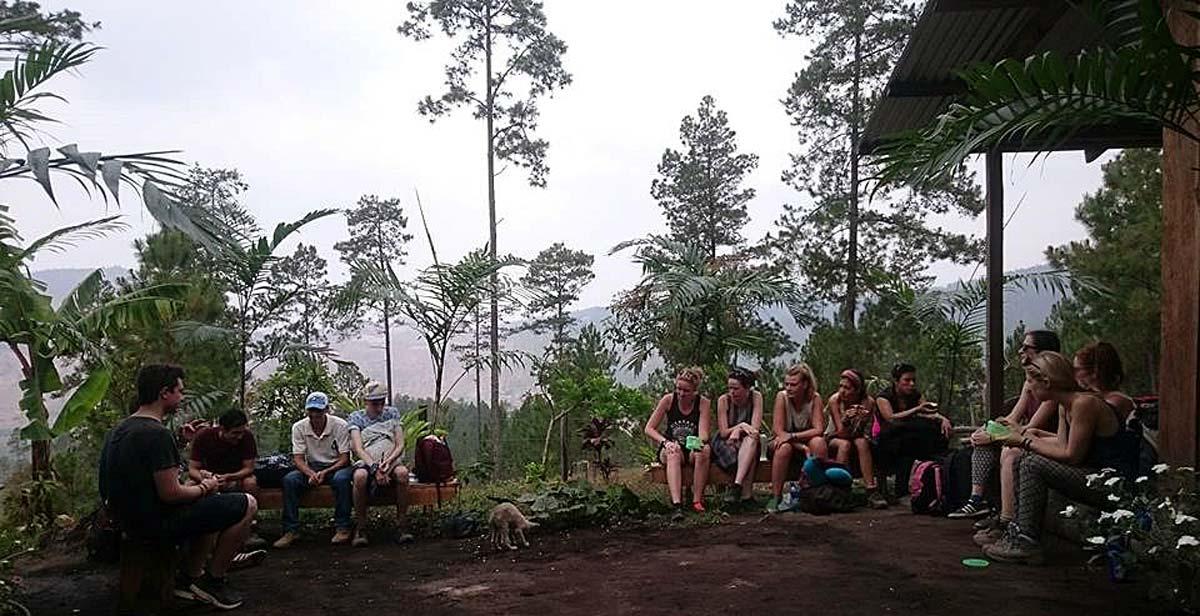In the village of El Bramadero there lives a man called Don Armando, he is one of the local leaders in charge of water for the community. He is wise and has a lot of knowledge about the local area, the history of Nicaragua and its agriculture.
We were fortunate enough to be invited up to Don Armando’s casa in the mountains in order to celebrate Primero de Mayo, as well as Charlie’s birthday. After making a few phone calls to Progressio in Managua, and Sophie in Parcila, we managed to arrange for the other team of UK and Nica volunteers to join us in the mountains to celebrate the birthdays of Charlie and Ryan.
It was a long hard walk up the mountain with all of our equipment, including hammocks and blankets for the night, as well as other provisions for the weekend; it was like a Duke of Edinburgh Gold, but worse and in 40-degree heat.
Drenched in perspiration, we finally arrived at Don Armando’s mountain getaway, a picturesque sea of green grass and pine trees for “as far as the eye can see”. It had running water, many herb gardens and plenty of leafy fields and an abundance of bananas. It was almost an entirely different place, much like Sherwood Forest in Nottingham, but really hot and 1,150m above sea level.
Upon arrival, the Nica volunteers showed us how to put our hammocks up in the trees, it was like being back at the cub scouts trying to tie the hammock to the tree without it slipping down. After the eternal struggle of putting our hammocks up, we went for lunch, which was a lovely meal served with fresh lemonade made from the biggest lemons you will ever witness, they literally looked like honeydew melons, it was so refreshing.

Don Armando took us for a nice post lunch walk around his vast plot of land, through the banana fields, across the remains of the maize fields and down into the depths of the coffee fields. In the coffee fields the Don was explaining to us how nice coffee only grows in altitudes above 900m. He also showed us some dead coffee plants and explained to us the sad story of how the plants haven’t managed to grow and flourish because of climate change and not being able to successfully predict the arrival of the rainy season.
After admiring the views, we headed back to the villa and went into the kitchen where we were taught by Gladys (wife to Don Armando) how to make Nacatamal - a traditional Nicaraguan dish made using ground maize liquid, spices, meat and tomatoes. It’s kind of like a maizy ravioli wrapped in a tied banana leaf, it’s really nice. The Nacatamal was served with some coffee that had literally just been picked from the coffee plants by Don Armando during his guided tour, it was incredibly fresh, but also quite sweet because the Nicas love their sugary coffee.

Once dinner was finished we were gathered around a fire in the courtyard and we had Don Pedro Cruz - the eldest resident in El Bram - come and speak to us about the history of El Bramadero. We learnt how the village got its name from the legendary Battle of El Bramadero in 1983, during the revolution. He was also telling us how the notorious Contras passed through El Bram setting fire to houses and shooting people, it was really horrific stuff. Don Armando was then talking to us about how climate change is affecting the crops in El Bram and the surrounding areas, saying that global warming had caused unpredictable rain seasons and has caused many a crop to suffer as a result. He was explaining that before climate change was a pressing matter in Nicaragua, the locals could predict the exact day when the rain season would start and their crops would flourish. But now, with the unpredictable rain seasons, the crops suffer badly.
We spent the night in our hammocks and to our dismay, the heavens opened up and it rained many times, but some of us persevered and stayed out the whole night and slept through to the morning. After breaking Charlie’s hammock trying to give him birthday bumps and sending him flying across the forest, we set off on our mountain descent back to El Bram.
It was a very fun and educational weekend in a beautiful part of El Bramadero and we heard some lovely stories about local occurrences from the people. It was great and I feel like I know the local area a lot better now.
Written by ICS volunteer Jamie Hall



